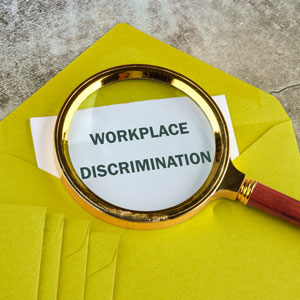Call For A Free Consultation
(386) 388-6260No Recovery, No Fee

Before taking legal action or filing with a state agency, it’s essential that you first report the issue internally to your employer’s HR department. This is largely due to what’s known as the Faragher-Ellerth defense, a legal principle that holds that an employer should be given a fair opportunity to resolve workplace discrimination complaints internally before facing litigation. If you forego this, you risk losing access to legal remedies. Many claims can actually be dismissed outright if the employee hasn’t given the employer a reasonable chance to address the issue first.
When it comes to navigating workplace discrimination laws and filing claims, time matters a lot. There are strict deadlines for filing discrimination claims, and they can vary depending on whether you’re pursuing a federal claim via the EEOC or a state-level claim in Florida. If you delay too long, you may lose the right to file altogether.
The bottom line? Don’t wait. Seek legal guidance early to ensure you’re meeting all necessary timelines.
Generally, there is minimal legal risk for employees who report suspected discrimination in good faith. Thanks to the Christiansburg standard, employees who file claims that aren’t frivolous typically aren’t held responsible for paying the employer’s legal fees even if they don’t win.
Although filing a claim without clear evidence or a well-thought-out approach won’t necessarily carry legal risks, it will obviously waste valuable time and emotional energy. That’s why thorough documentation and a clear narrative are central for both you and your attorney to build a strong case.
Inconsistencies whether in documentation, statements, or testimony can seriously weaken your case. Judges and juries are much more likely to support your claim when your story is detailed, consistent, and well-documented from the beginning. As a well-known attorney put it, An inconsistent story is a much less compelling story. Keep careful, chronological records and avoid contradictions whenever possible.
This is one of the most nuanced aspects of workplace discrimination cases. Whether to discuss your case with coworkers depends on:
Colleagues you trust may provide you with invaluable witness testimony or even share similar experiences. This will help build a stronger case, especially if others have also experienced discrimination.
Even though retaliation is illegal, some employers may find ways to punish employees who discuss complaints. Conversations can also lead to strained relationships with colleagues or management. And, perhaps most importantly, not all of your coworkers will prove to be your allies. Your discussions could be reported back to HR or leadership.
There’s truly no one-size-fits-all answer here. Speaking with an attorney who understands the dynamics of workplace environments can help you make the right call.
One of the biggest mistakes is relying solely on oral conversations when reporting issues. Verbal reports are difficult to prove and can lead to miscommunications or outright denials. Instead, always aim to report discrimination through clear, written communication preferably email. Email provides a timestamped, verifiable record that’s harder to dispute than a phone call or in-person conversation.
A case we recently handled highlights the importance of clear documentation when reporting workplace issues. The case involved an on-the-job injury in a workers’ compensation dispute, but the same principle applies to discrimination claims. The employee reported the injury orally, but the conversation was vague and lacked detail. Later, a text exchange between coworkers clarified the issue, but the employer’s initial stance was that the injury had never been reported. This misunderstanding made it much harder to pursue the claim.
Had the employee sent a quick email instead of relying on a verbal report, the issue could have been easily verified and prevented unnecessary legal complications. This drives home why written documentation is absolutely crucial in your workplace discrimination cases and how failing to maintain thorough records could undermine your rights and the strength of whatever recourse you opt to exercise later in the process.
Still Have Questions? Ready To Get Started?
For more information on workplace discrimination laws, a free consultation is your next best step. Get the information and legal answers you are seeking by calling (386) 388-6260 today.